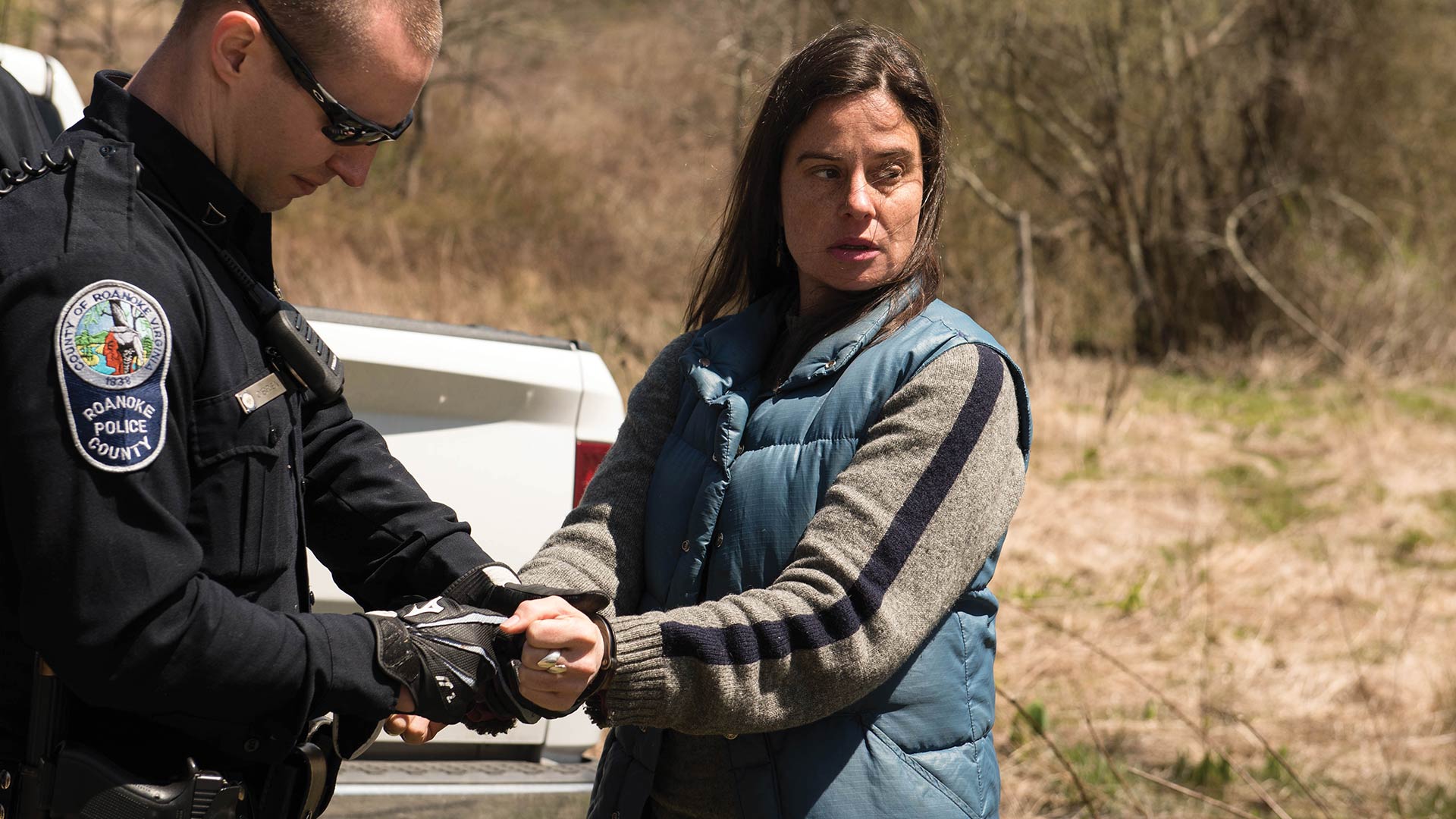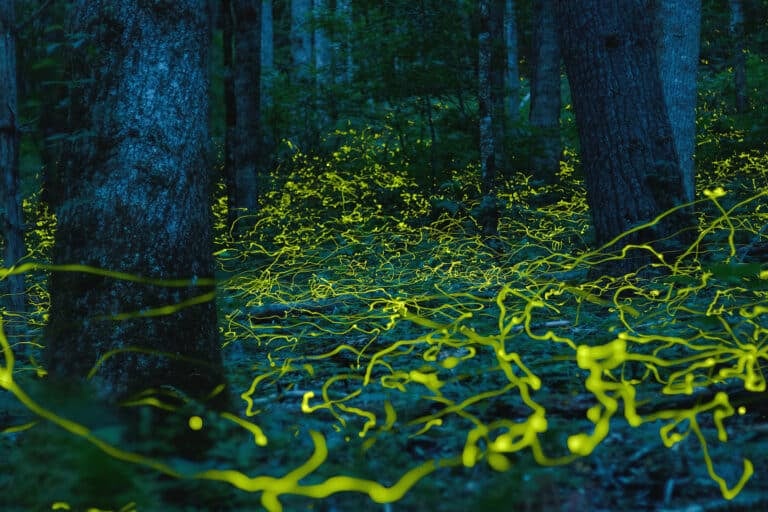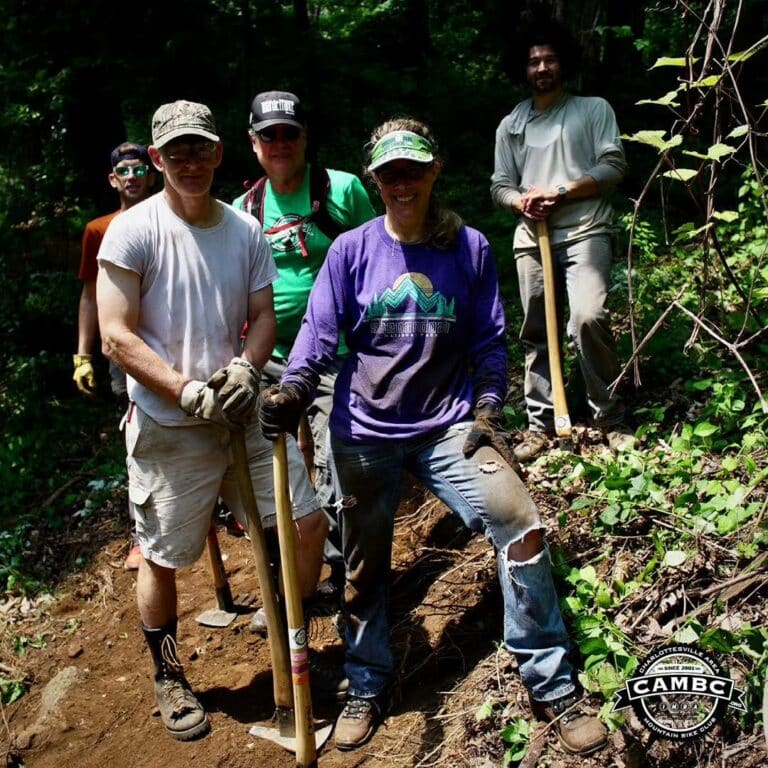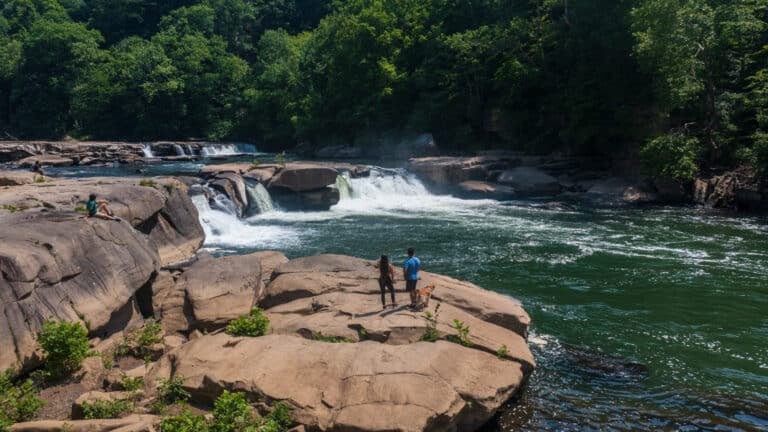The Federal Energy Regulatory Commission approved the Mountain Valley Pipeline (MVP) and Atlantic Coast Pipeline (ACP) in October. Both are intended to run fracked natural gas from the Marcellus and Utica shale fields in northern West Virginia to markets in the Southeastern United States. After FERC’s approval, MVP was given a green light by Virginia and West Virginia’s environmental agencies, and a judge awarded MVP immediate possession of more than 300 properties through eminent domain. The pipeline’s construction crews began clearing swaths of trees along the route.
Then, in late February, two anonymous individuals stationed themselves in trees on Peters Mountain near the Appalachian Trail. Their position blocked pipeline crews from drilling a hole beneath the trail. Soon they were joined in the Jefferson National Forest by a woman known only as Nutty, who climbed onto a suspended platform to block an access road to the construction site.
Inspired by the actions on Peters Mountain, a 61-year-old mother and her 30-year-old daughter began tree sits in early April within a swath on their own land in southwest Roanoke County, Virginia, that had been awarded to the pipeline. Later that month they were joined by three more tree-sitters on Four Corners Farm in Franklin County, Virginia.
Tree-sitting emerged as an environmentalist tactic of direct action in the late 60s and 70s before becoming more broadly used as a means of blocking logging operations in the ’80s. Julia Butterfly Hill won global recognition for her 738-day sit from 1997 to 1999, protecting a massive coastal redwood in northern California. A decade later, environmentalists used tree sits in southern West Virginia to delay blasting for mountaintop removal mining in at least three different battles with coal companies.
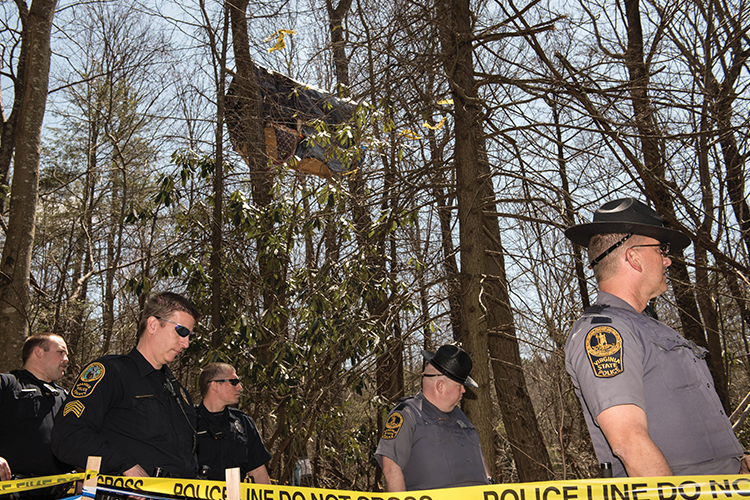
One of the Peters Mountain tree-sitters posted about their motivation on Facebook at the Appalachians Against Pipeline page: “Each of us in this fight, in a tree or on the ground, have our reasons. For me, it’s because Appalachia is my home.”
The tree sits have bought time for six different lawsuits to work their way through the courts, even as MVP crews are felling trees along the route. And in mid-May, a federal appeals court halted construction of the Atlantic Coast Pipeline thanks to litigation brought by Southern Environmental Law Center over improper analysis of endangered species along the pipeline route. It offers pipeline opponents at least a temporary victory in a process that has largely gone against them.
Meanwhile, the pipeline companies have tried to use the courts to force the tree-sitters down, with mixed results. On Peters Mountain, a judge denied an injunction to force the protesters out of the trees.
The U.S. Forest Service and pipeline crews have blocked Nutty from receiving food, water, or medical attention. In Facebook posts, Nutty said that she has food and water to continue her stand, while advocates are fighting in courts and media coverage to win the right to re-supply her. In April, three people were arrested after one tried to deliver supplies to Nutty.
On Day 42, Nutty wrote, “I have gallons of water stored. I still have a stock of energy bars and some packets of applesauce. This is, comparatively, an extremely mild form of deprivation, and one I’m fortunate my body seems to have adapted well to. Recently a doctor hiked up to check on me, and asked (via megaphone, over the noise of the generator the cops turned on) if I needed any medicine. I don’t; all the medicine I want right now is to hear that rebellion is spreading.”
Natalie Cox, a spokeswoman for the Mountain Valley Pipeline, wrote in an email that the company is committed to “responsible construction” of the pipeline. “We respect opponents’ right to peacefully and lawfully protest. At the same time, however, it is important to note that all work for the MVP project has been authorized by federal and state agencies, and the Virginia DEQ has imposed on MVP the most stringent oversight of a natural gas pipeline project in the department’s history,” Cox wrote.
The stand-off on Bent Mountain became the focal point for media attention through April and early May chiefly because the two tree-sitting women, Red and Minor Terry, were both charged with trespassing on their own land—albeit in a place to which MVP had been awarded possession by courts. A judge eventually ordered the Terrys to descend, but their two-month vigil won them support not just from environmentalists but also from property rights advocates.
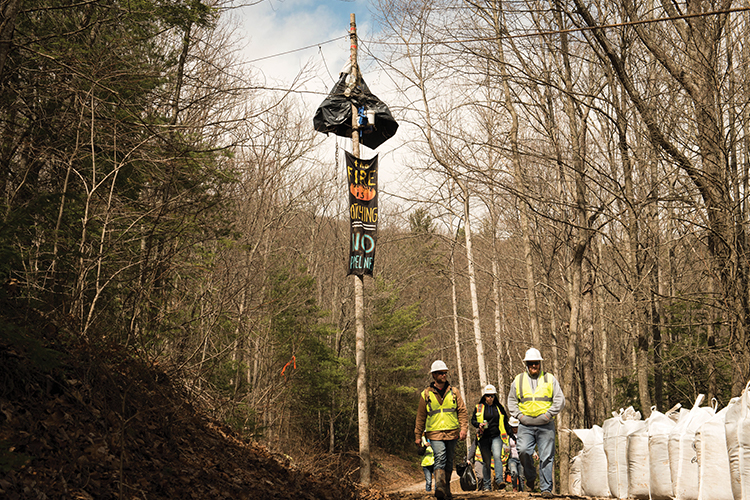
Can the tree sits stop the Mountain Valley Pipeline? Anti-pipeline activists hold out hope that a judge will intervene in the Mountain Valley Pipeline through one of the half-dozen remaining court cases, or that the Virginia State Water Control Board blocks it by denying permits under the federal Clean Water Act, as New York did in 2016 to successfully block the Constitution Pipeline. Some think the MVP’s parent company, the Pittsburgh-based EQT, might back down under market pressure if the price of gas falls. These are longshots, at least based on previous history.
The tree sits and accompanying media coverage, however, have changed the pipeline conversation in Appalachia. Virginia’s state legislature killed every piece of substantial pipeline-related legislation in the opening months of 2018, but since the tree sits began, more state lawmakers have spoken out against the pipelines. This is how political change begins to happen, as elected officials follow the grassroots.
The coalition may not ultimately stop the Mountain Valley Pipeline, but a growing number of people are finding common ground over shared concerns for property rights, protection of a clean environment, and the energy future of the nation.
The Mountain Valley Pipeline tree sits have energized a new group of activists in Appalachia and changed how people think about natural gas pipelines. And as of this moment, three people still remain stationed in the canopy— two on Peters Mountain (counting Nutty on her monopod) near the A.T. and one in Franklin County. The tree-sitters aren’t done yet.
